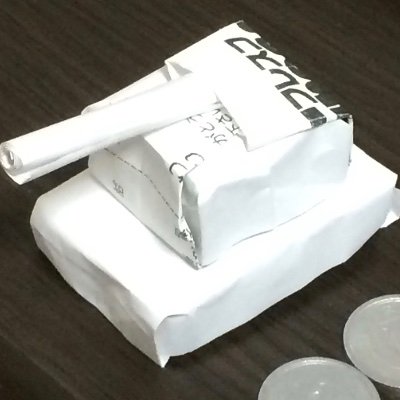結果
| 問題 | No.367 ナイトの転身 |
| コンテスト | |
| ユーザー |
 cureskol cureskol
|
| 提出日時 | 2023-03-10 14:59:21 |
| 言語 | C++17 (gcc 15.2.0 + boost 1.89.0) |
| 結果 |
AC
|
| 実行時間 | 84 ms / 2,000 ms |
| コード長 | 10,120 bytes |
| 記録 | |
| コンパイル時間 | 3,357 ms |
| コンパイル使用メモリ | 238,572 KB |
| 最終ジャッジ日時 | 2025-02-11 07:25:05 |
|
ジャッジサーバーID (参考情報) |
judge3 / judge2 |
(要ログイン)
| ファイルパターン | 結果 |
|---|---|
| other | AC * 27 |
ソースコード
#pragma region template
#pragma GCC optimize("Ofast")
#include <bits/stdc++.h>
using namespace std;
using ll=long long;
using ld=long double;
using vi=vector<int>;
using vll=vector<ll>;
using pi=pair<int,int>;
using pll=pair<ll,ll>;
#define overload2(a,b,c,...) c
#define overload3(a,b,c,d,...) d
#define overload4(a,b,c,d,e,...) e
#define overload5(a,b,c,d,e,f,...) f
#define TYPE1(T) template<typename T>
#define TYPE2(T,U) template<typename T,typename U>
#define TYPE(...) overload2(__VA_ARGS__,TYPE2,TYPE1)(__VA_ARGS__)
#define TYPES1(T) template<typename... T>
#define TYPES2(H,T) template<typename H,typename... T>
#define TYPES(...) overload2(__VA_ARGS__,TYPES2,TYPES1)(__VA_ARGS__)
#define REP4(i,s,n,d) for(int i=(s);i<(n);i+=(d))
#define REP3(i,s,n) REP4(i,s,n,1)
#define REP2(i,n) REP3(i,0,n)
#define REP1(n) REP2(tomato,n)
#define REP(...) overload4(__VA_ARGS__,REP4,REP3,REP2,REP1)(__VA_ARGS__)
#define RREP4(i,n,s,d) for(int i=(n)-1;i>=(s);i-=(d))
#define RREP3(i,n,s) RREP4(i,n,s,1)
#define RREP2(i,n) RREP3(i,n,0)
#define RREP1(n) RREP2(tomato,n)
#define RREP(...) overload4(__VA_ARGS__,RREP4,RREP3,RREP2,RREP1)(__VA_ARGS__)
#define FOR4(a,b,c,d,v) for(auto [a,b,c,d]:v)
#define FOR3(a,b,c,v) for(auto [a,b,c]:v)
#define FOR2(a,b,v) for(auto [a,b]:v)
#define FOR1(a,v) for(auto a:v)
#define FOR(...) overload5(__VA_ARGS__,FOR4,FOR3,FOR2,FOR1)(__VA_ARGS__)
#define AFOR4(a,b,c,d,v) for(auto&[a,b,c,d]:v)
#define AFOR3(a,b,c,v) for(auto&[a,b,c]:v)
#define AFOR2(a,b,v) for(auto&[a,b]:v)
#define AFOR1(a,v) for(auto&a:v)
#define AFOR(...) overload5(__VA_ARGS__,AFOR4,AFOR3,AFOR2,AFOR1)(__VA_ARGS__)
#define CFOR4(a,b,c,d,v) for(const auto&[a,b,c,d]:v)
#define CFOR3(a,b,c,v) for(const auto&[a,b,c]:v)
#define CFOR2(a,b,v) for(const auto&[a,b]:v)
#define CFOR1(a,v) for(const auto&a:v)
#define CFOR(...) overload5(__VA_ARGS__,CFOR4,CFOR3,CFOR2,CFOR1)(__VA_ARGS__)
#define PFOR(v) for(bool f=true; (f ? exchange(f,false) : next_permutation(v));)
#define ALL(v) v.begin(),v.end()
#define RALL(v) v.rbegin(),v.rend()
#define SORT(v) sort(ALL(v))
#define RSORT(v) sort(RALL(v))
#define REVERSE(v) reverse(ALL(v))
#define UNIQUE(v) SORT(v),v.erase(unique(ALL(v)),v.end())
#define SZ(v) int(v.size())
TYPES(T) void input(T&... a){ (cin>>...>>a); }
#define DECLARE(T,...) T __VA_ARGS__;input(__VA_ARGS__);
#define INT(...) DECLARE(int,__VA_ARGS__)
#define STR(...) DECLARE(string,__VA_ARGS__)
#define LL(...) DECLARE(long long,__VA_ARGS__)
#define CHR(...) DECLARE(char,__VA_ARGS__)
#define DBL(...) DECLARE(double,__VA_ARGS__)
#define VI(n,v) vi v(n);cin>>v;
#define VLL(n,v) vll v(n);cin>>v;
#define VS(n,s) vector<string> s(n);cin>>s;
TYPE(T) istream&operator>>(istream&is,vector<T>&v){
for(auto&a:v)cin>>a;
return is;
}
TYPE(T) ostream&operator<<(ostream&os,const vector<T>&v){
if(&os==&cerr)os<<"[";
REP(i,v.size()){
os<<v[i];
if(i+1<v.size())os<<(&os==&cerr?",":" ");
}
if(&os==&cerr)os<<"]";
return os;
}
TYPE(T,S) istream&operator>>(istream&is,pair<T,S>&p){
cin>>p.first>>p.second;
return is;
}
#ifdef __DEBUG
#include <debug>
#else
#define debug(...) void(0)
#endif
void print(){ cout << '\n'; }
TYPES(T,Ts) void print(const T& a,const Ts&... b){
cout<<a;
(cout<<...<<(cout<< ' ',b));
cout << '\n';
}
TYPE(T) using pq=priority_queue<T>;
TYPE(T) using pqg=priority_queue<T,vector<T>,greater<T>>;
TYPE(T) T pick(queue<T>& que){assert(que.size()); T a=que.front();que.pop();return a;}
TYPE(T) T pick(pq<T>& que){assert(que.size()); T a=que.top();que.pop();return a;}
TYPE(T) T pick(pqg<T>& que){assert(que.size()); T a=que.top();que.pop();return a;}
TYPE(T) T pick(stack<T>& sta){assert(sta.size()); T a=sta.top();sta.pop();return a;}
TYPE(T) void clear(T&v){ v=decltype(v)(); }
string YES(bool f=true){return (f?"YES":"NO");}
string Yes(bool f=true){return (f?"Yes":"No");}
string yes(bool f=true){return (f?"yes":"no");}
constexpr int INF=1e9+7;
constexpr ll LINF=ll(1e18)+7;
constexpr ld EPS=1e-10;
vi iota(int n){vi a(n);iota(ALL(a),0);return a;}
TYPE(T) vector<pair<T,int>> query_sort(const vector<T>&v){
vector<pair<T,int>> res(v.size());
REP(i,v.size())res[i]={v[i],i};
SORT(res);
return res;
}
TYPE(T) void add(vector<T>&v,T a=1){ AFOR(p,v)p+=a; }
TYPE(T) T rev(T a){ REVERSE(a);return a; }
TYPE(T) void fin(T a){cout<<a<<'\n';exit(0);}
TYPE(T) bool chmax(T &a,T b){return (a<b&&(a=b,true));}
TYPE(T) bool chmin(T &a,T b){return (a>b&&(a=b,true));}
TYPES(T,Ns) auto make_vector(T x,int n,Ns ...ns){
if constexpr(sizeof...(ns)==0)return vector<T>(n,x);
else return vector(n,make_vector<T>(x,ns...));
}
bool in(const ll S,const int a){return (S>>a)&1;}
int popcount(const ll S){return __builtin_popcountll(S);}
int digit(char c){ return (c>='0' and c<='9' ? c-'0' : -1);}
ll sqrtll(ll a){
for(ll b=sqrt(a);b*b<=a;b++)if(b*b==a)return b;
for(ll b=sqrt(a);b>=0 and b*b>=a;b--)if(b*b==a)return b;
return -1;
}
#pragma endregion template
template<typename T>
struct WeightedEdge{
WeightedEdge()=default;
WeightedEdge(int from,int to,T weight):from(from),to(to),weight(weight){}
int from,to;
T weight;
operator int()const{ return to; }
};
template<typename T>
struct WeightedGraph{
int n;
using weight_type=T;
using edge_type=WeightedEdge<T>;
vector<edge_type> edges;
protected:
vector<int> in_deg;
bool prepared;
class OutgoingEdges{
WeightedGraph* g;
int l,r;
public:
OutgoingEdges(WeightedGraph* g,int l,int r):g(g),l(l),r(r){}
edge_type* begin(){ return &(g->edges[l]); }
edge_type* end(){ return &(g->edges[r]); }
edge_type& operator[](int i){ return g->edges[l+i]; }
int size()const{ return r-l; }
};
class ConstOutgoingEdges{
const WeightedGraph* g;
int l,r;
public:
ConstOutgoingEdges(const WeightedGraph* g,int l,int r):g(g),l(l),r(r){}
const edge_type* begin()const{ return &(g->edges[l]); }
const edge_type* end()const{ return &(g->edges[r]); }
const edge_type& operator[](int i)const{ return g->edges[l+i]; }
int size()const{ return r-l; }
};
public:
OutgoingEdges operator[](int v){
assert(prepared);
return { this,in_deg[v],in_deg[v+1] };
}
const ConstOutgoingEdges operator[](int v)const{
assert(prepared);
return { this,in_deg[v],in_deg[v+1] };
}
bool is_prepared()const{ return prepared; }
WeightedGraph():n(0),in_deg(1,0),prepared(false){}
WeightedGraph(int n):n(n),in_deg(n+1,0),prepared(false){}
WeightedGraph(int n,int m,bool directed=false,int indexed=1):
n(n),in_deg(n+1,0),prepared(false){ scan(m,directed,indexed); }
void resize(int n){n=n;}
void add_arc(int from,int to,T weight){
assert(!prepared);
assert(0<=from and from<n and 0<=to and to<n);
edges.emplace_back(from,to,weight);
in_deg[from+1]++;
}
void add_edge(int u,int v,T weight){
add_arc(u,v,weight);
add_arc(v,u,weight);
}
void add_arc(const edge_type&e){
add_arc(e.from,e.to,e.weight);
}
void add_edge(const edge_type&e){
add_edge(e.from,e.to,e.weight);
}
void scan(int m,bool directed=false,int indexed=1){
edges.reserve(directed?m:2*m);
while(m--){
int u,v;cin>>u>>v;u-=indexed;v-=indexed;
T weight;cin>>weight;
if(directed)add_arc(u,v,weight);
else add_edge(u,v,weight);
}
build();
}
void build(){
assert(!prepared);prepared=true;
for(int v=0;v<n;v++)in_deg[v+1]+=in_deg[v];
vector<edge_type> new_edges(in_deg.back());
auto counter=in_deg;
for(auto&&e:edges)new_edges[ counter[e.from]++ ]=e;
edges=new_edges;
}
void graph_debug()const{
#ifndef __LOCAL
return;
#endif
assert(prepared);
for(int from=0;from<n;from++){
cerr<<from<<";";
for(int i=in_deg[from];i<in_deg[from+1];i++)
cerr<<"("<<edges[i].to<<","<<edges[i].weight<<")";
cerr<<"\n";
}
}
};
#define REP_(i,n) for(int i=0;i<(n);i++)
template<typename T>
class Grid{
const int h,w;
optional<T> ban;
static constexpr pair<int,int> d4[4]={{1,0},{0,1},{-1, 0},{0, -1}};
template<typename vecvecT> void build(const vecvecT&grid){
REP_(y,h)REP_(x,w){
int p=id(y,x);
v[p]=grid[y][x];
if(ban and v[p]==ban.value())continue;
REP_(d,4){
int y2=y+d4[d].first,x2=x+d4[d].second;
if(in(y2,x2) and (!ban or ban.value()!=grid[y2][x2]))
G.add_arc(p,id(y2,x2),d);
}
}
G.build();
}
public:
vector<T> v;
WeightedGraph<int> G;
bool in(int y,int x)const{
return 0<=y and y<h and 0<=x and x<w;
}
int id(int y,int x)const{
assert(in(y,x));
return y*w+x;
}
pair<int,int> r2(int a)const{
assert(0<=a and a<h*w);
return {a/w,a%w};
}
Grid(const vector<vector<T>>&grid,const optional<T>&ban=nullopt):h(grid.size()),w(grid[0].size()),ban(ban),v(h*w),G(h*w){ build(grid); }
Grid(const vector<string>&s,const optional<T>&ban=nullopt):h(s.size()),w(s[0].size()),ban(ban),v(h*w),G(h*w){
static_assert(is_same<T,char>::value,"value_type==char");
build(s);
}
int find(const T&c)const{
REP_(i,h*w)if(v[i]==c)return i;
return -1;
}
};
#undef REP_
int main(){
ios::sync_with_stdio(false);
cin.tie(nullptr);
INT(h,w);
VS(h,s);
Grid<char> g(s);
int now=g.find('S');
auto [y,x]=g.r2(now);
auto d=make_vector<int>(-1,h,w,2);
d[y][x][0]=0;
queue<tuple<int,int,bool>> que;
que.emplace(y,x,0);
while(que.size()){
auto [y,x,a]=pick(que);
if(a){
REP(i,-1,2,2)REP(j,-1,2,2){
int Y=y+i,X=x+j;
if(!g.in(Y,X))continue;
bool b=!(s[Y][X]=='R');
if(~d[Y][X][b])continue;
d[Y][X][b]=d[y][x][a]+1;
que.emplace(Y,X,b);
}
}
else{
REP(i,-2,3,1)REP(j,-2,3,1){
if(!i||!j)continue;
if(abs(i)+abs(j)!=3)continue;
int Y=y+i,X=x+j;
if(!g.in(Y,X))continue;
bool b=(s[Y][X]=='R');
if(~d[Y][X][b])continue;
d[Y][X][b]=d[y][x][a]+1;
que.emplace(Y,X,b);
}
}
}
auto [Y,X]=g.r2(g.find('G'));
AFOR(ans,d[Y][X])if(ans<0)ans=INF;
int ans=min(d[Y][X][0],d[Y][X][1]);
if(ans==INF)ans=-1;
cout<<ans<<'\n';
}
